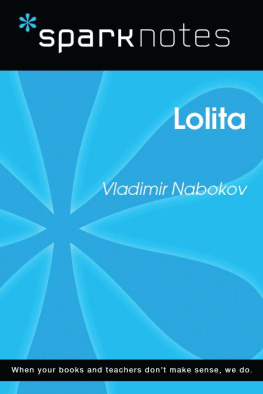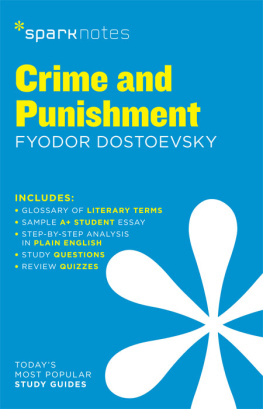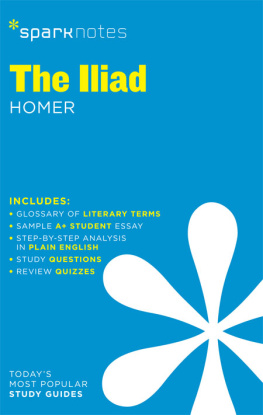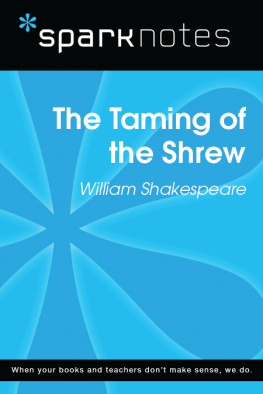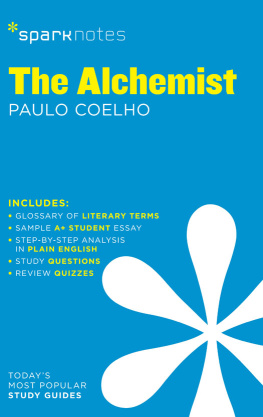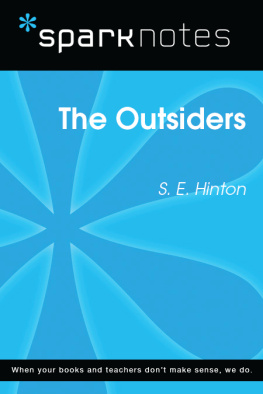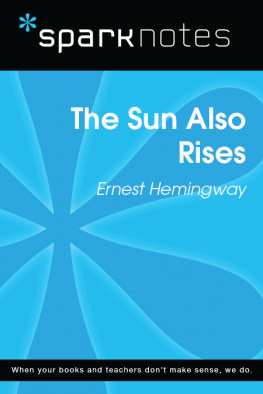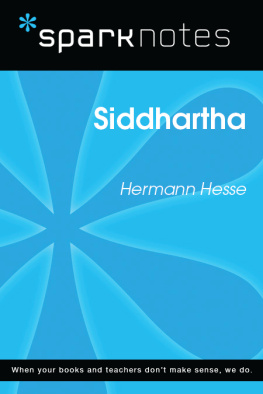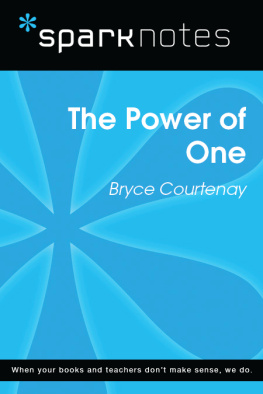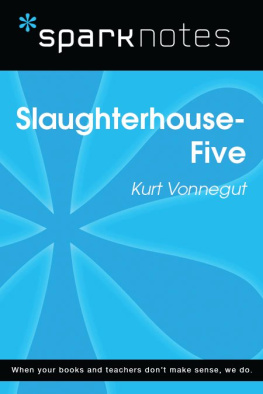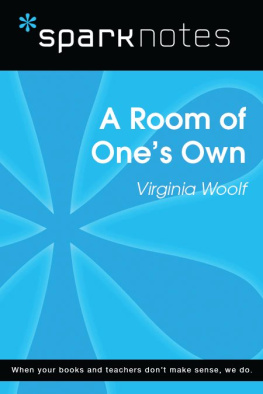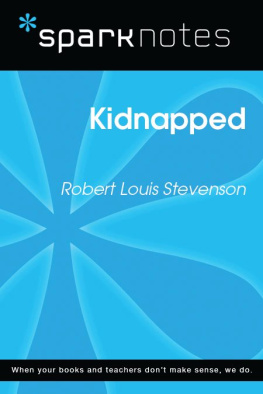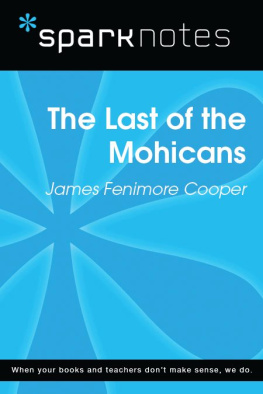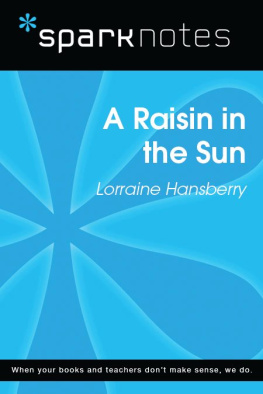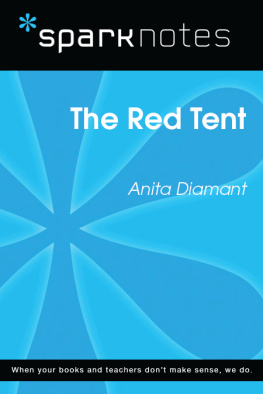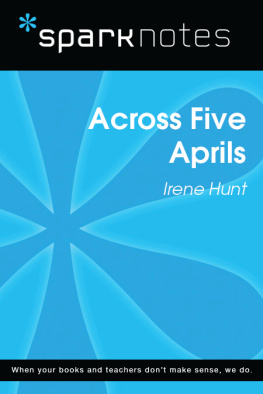SparkNotes - Lolita
Here you can read online SparkNotes - Lolita full text of the book (entire story) in english for free. Download pdf and epub, get meaning, cover and reviews about this ebook. year: 2014, publisher: Spark, genre: Detective and thriller. Description of the work, (preface) as well as reviews are available. Best literature library LitArk.com created for fans of good reading and offers a wide selection of genres:
Romance novel
Science fiction
Adventure
Detective
Science
History
Home and family
Prose
Art
Politics
Computer
Non-fiction
Religion
Business
Children
Humor
Choose a favorite category and find really read worthwhile books. Enjoy immersion in the world of imagination, feel the emotions of the characters or learn something new for yourself, make an fascinating discovery.
- Book:Lolita
- Author:
- Publisher:Spark
- Genre:
- Year:2014
- Rating:3 / 5
- Favourites:Add to favourites
- Your mark:
- 60
- 1
- 2
- 3
- 4
- 5
Lolita: summary, description and annotation
We offer to read an annotation, description, summary or preface (depends on what the author of the book "Lolita" wrote himself). If you haven't found the necessary information about the book — write in the comments, we will try to find it.
Making the reading experience fun!
Created by Harvard students for students everywhere, SparkNotes is a new breed of study guide: smarter, better, faster. Geared to what todays students need to know, SparkNotes provides: *Chapter-by-chapter analysis
*Explanations of key themes, motifs, and symbols
*A review quiz and essay topicsLively and accessible, these guides are perfect for late-night studying and writing papers
Lolita — read online for free the complete book (whole text) full work
Below is the text of the book, divided by pages. System saving the place of the last page read, allows you to conveniently read the book "Lolita" online for free, without having to search again every time where you left off. Put a bookmark, and you can go to the page where you finished reading at any time.
Font size:
Interval:
Bookmark:

2003, 2007 by Spark Publishing
This Spark Publishing edition 2014 by SparkNotes LLC, an Affiliate of Barnes & Noble
All rights reserved. No part of this publication may be reproduced, stored in a retrieval system, or transmitted in any form or by any means (including electronic, mechanical, photocopying, recording, or otherwise) without prior written permission from the publisher.
Sparknotes is a registered trademark of SparkNotes LLC
Spark Publishing
A Division of Barnes & Noble
120 Fifth Avenue
New York, NY 10011
www.sparknotes.com /
ISBN-13: 978-1-4114-7627-1
Please submit changes or report errors to www.sparknotes.com.
10 9 8 7 6 5 4 3 2 1
Vladimir Vladimirovich Nabokov was born in St. Petersburg, Russia, on April 23, 1899, into a family with a long history of public service and scholarship. After the Russian Revolution of 1917, Nabokov and his family went into exile in England. Trilingual in Russian, English, and French from an early age, Nabokov earned an honors degree in Slavic and Romance languages from Trinity College, Cambridge, in 1922. He embarked upon a literary career, writing primarily in Russian. Among his notable early works was a Russian translation of Lewis Carrolls Alice in Wonderland. In 1925, Nabokov married Vera Slonim, and in 1934 their only child, Dmitri, was born. The Nabokovs lived in both Germany and France before emigrating to the United States in 1940, where Nabokov taught literature courses at Wellesley and Cornell Universities. The move to America also inspired Nabokov to begin writing in English.
By 1955, Nabokov had already published a number of novels but had yet to create his masterpiece Lolita, which Nabokov began writing in 1949. It was originally rejected by no fewer than four American publishers, who found the story of a middle-aged professors lust for his preteen stepdaughter too inflammatory for publication. Undaunted, Nabokov persisted, and Lolita was eventually published in France in 1955 by the marginally reputable Olympia Press. Though it was condemned in some corners as scandalous trash, Lolita became an underground literary sensation in France. Driven by the growing critical acclaim for the book, Putnam published an American edition of the novel in 1958. Some countries deemed Lolita obscene and banned it, but the novel became a best seller in the United States, despite its controversial subject matter.
In its frank discussions of forbidden desire and sexuality, Lolita was revolutionary for its time. Though such writers as D. H. Lawrence and James Joyce had written about sexuality at the turn of the century, and though the evolution of psychology had brought the themes of sexuality and repression to the forefront of popular culture, no book had so explicitly expplored the darker elements of sex and desire. Nabokov was not a proponent of Freudian psychology, but he could not ignore its impact on literature or on the study of human emotion. In Lolita, he attempts to subvert the traditional views of sexuality and psychology while pretending to pay homage to them.
Lolita also represents a classic example of postmodern literature. Postmodernism arose in the early years of the twentieth century and represented, in part, a move away from the notion that a novel should tell a realistic story from an objective perspective. Postmodern writers are primarily interested in writing that evokes the fragmentary nature of experience and the complexity of language. Humbert Humbert, the protagonist of Lolita, narrates the novel from a highly subjective point of view, and he uses rich, sophisticated language to do so. Lolita contains a vast variety of linguistic devices, including puns, multilingual expressions, artistic allusions, word patterns, and references to other works. These devices followed from the then-popular idea that a novel was not a fixed work of literature, but rather a more fluid, organic creation that was interconnected with other media. Humberts elegant and sinuous prose, however, conceals a subversive intent. The beauty and intensity of the language allow readers to remain sympathetic to the pedophile protagonist and compel them to read further, despite the numerous distressing events within the novel.
Though Lolita is a fictional memoir, Nabokov actually shared many personality traits with his protagonist Humbert Humbert. Both men were highly educated, academically oriented European exiles who made their homes in America, and both possessed a compelling gift for language. However, unlike the pedophiliac, delusional Humbert, Nabokov was a devoted family man who lived a quiet, scholarly existence. Because of Lolitas success as a novel and as a film, Nabokov had the funds to retire to Switzerland in 1960 and devote himself exclusively to writing until his death in 1977. A prolific author, Nabokovs other notable works include Speak, Memory: An Autobiography Revisited (1951), Pnin (1957), Pale Fire (1962), and Ada or Ardor: A Family Chronicle (1969). Nabokov also developed talents and hobbies besides writing. His passion for lepidoptera, the study of butterflies, earned him a position with the Museum of Natural History in New York. He was also a skilled chess player, a creator of Russian crosswords, and an avid tennis player.
Lolita was twice adapted for film. Stanley Kubrick directed the first adaptation, starring James Mason, Sue Lyons, and Peter Sellers, in 1962. Nabokov himself worked on the script, and the controversial film, though generally well received, garnered criticism for being too darkly comical on the subject of pedophilia. Lolita was adapted for film again in 1997, by director Adrian Lyne, and starred Jeremy Irons, Dominique Swain, and Frank Langella. The movie stirred up controversy once again, this time for its sex scenes between Irons and the underage Swain. After some difficulty finding an American distributor, Lyne released the movie to mixed reviews. While elements of Lolita lend themselves to film, and though the novel explicitly recognizes film as an influence, neither film fully captures the complicated mix of acrobatic language, black comedy, and tender romantic sentiment for which the novel had become famous. The novel has numerous referencesfrom crude, lowbrow puns to highly obscure scholarly referencesand it encompasses a vast array of human emotionfrom tragic to comic. None of these elements come through as effectively on screen as they do in the book itself.
In the novels foreword, the fictional John Ray, Jr., Ph.D., explains the strange story that will follow. According to Ray, he received the manuscript, entitled Lolita, or the Confession of a White Widowed Male, from the authors lawyer. The author himself, known by the pseudonym of Humbert Humbert (or H. H.), died in jail of coronary thrombosis while awaiting a trial. Ray asserts that while the authors actions are despicable, his writing remains beautiful and persuasive. He also indicates that the novel will become a favorite in psychiatric circles as well as encourage parents to raise better children in a better world.
In the manuscript, Humbert relates his peaceful upbringing on the Riviera, where he encounters his first love, the twelve-year-old Annabel Leigh. Annabel and the thirteen-year-old Humbert never consummate their love, and Annabels death from typhus four months later haunts Humbert. Although Humbert goes on to a career as a teacher of English literature, he spends time in a mental institution and works a succession of odd jobs. Despite his marriage to an adult woman, which eventually fails, Humbert remains obsessed with sexually desirable and sexually aware young girls. These nymphets, as he calls them, remind him of Annabel, though he fails to find another like her. Eventually, Humbert comes to the United States and takes a room in the house of widow Charlotte Haze in a sleepy, suburban New England town. He becomes instantly infatuated with her twelve-year-old daughter Dolores, also known as Lolita. Humbert follows Lolitas moves constantly, occasionally flirts with her, and confides his pedophiliac longings to a journal. Meanwhile, Charlotte Haze, whom Humbert loathes, has fallen in love with him. When Charlotte sends Lolita off to summer camp, Humbert marries Charlotte in order to stay near his true love. Humbert wants to be alone with Lolita and even toys with the idea of killing Charlotte, but he cant go through with it. However, Charlotte finds his diary and, after learning that he hates her but loves her daughter, confronts him. Humbert denies everything, but Charlotte tells him she is leaving him and storms out of the house. At that moment, a car hits her and she dies instantly.
Font size:
Interval:
Bookmark:
Similar books «Lolita»
Look at similar books to Lolita. We have selected literature similar in name and meaning in the hope of providing readers with more options to find new, interesting, not yet read works.
Discussion, reviews of the book Lolita and just readers' own opinions. Leave your comments, write what you think about the work, its meaning or the main characters. Specify what exactly you liked and what you didn't like, and why you think so.

